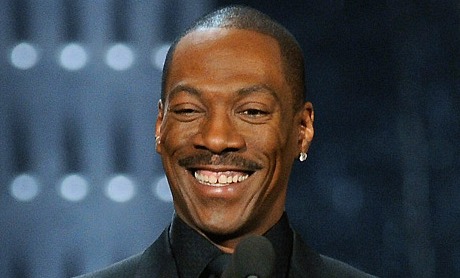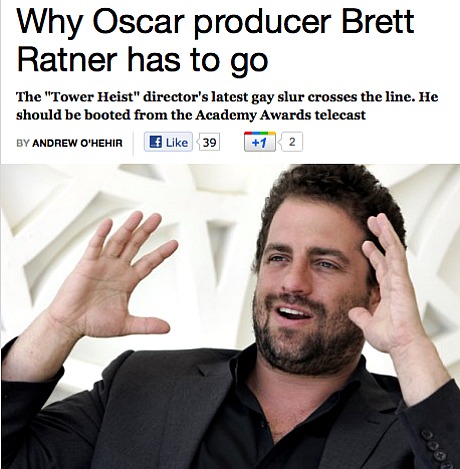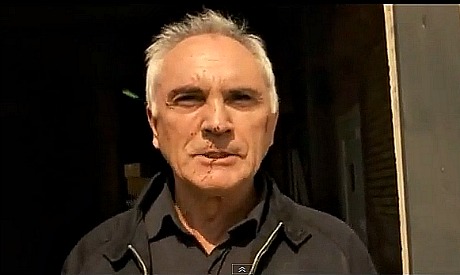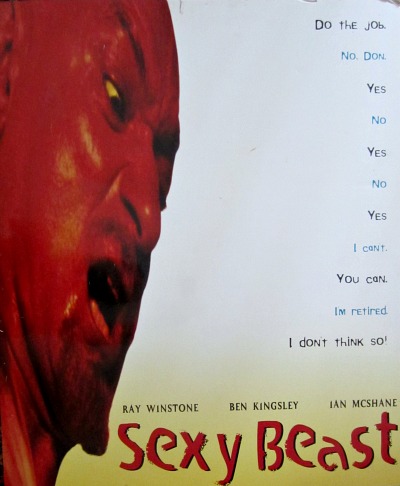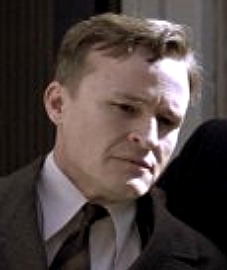Here‘s the formal apology and mea culpa that former Oscar telecast producer Brett Ratner released yesterday. And here’s my notion of what Ratner probably had in his head as he was writing his statement:
“To my LGBT friends, colleagues, acquaintances and comrades: I’m sorry, guys. And I’m not just sorry I lost the Oscar-producing gig, which happened because of the stuff I said to Howard Stern two days ago and not because I said ‘rehearsing is for fags.’ But I am sorry I pissed you guys off. Really. You know I’m not some homophobic shithead. You know I’m just an amiable, marginally talented, commercially-inclined fratboy director who likes to make popular movies, and that I want everyone to love or like me for having made them. And you know I just stepped in it. I’m not an asshole. I’m just a little thoughtless and lazy from time to time.
“I used a phrase that indicated I equate homosexuality with dainty, sissy-fied, less-than-manly behavior. I guess that’s what straight men of my father’s generation used to think privately or say to each other in the local tavern or whatever, but attitudes have obviously progressed since Stonewall and I was a douche for showing that I’ve been too caught up in my Brett Ratner lifestyle to show respect for that evolution by evicting all homophobic terms from my vocabulary and moving on and…you know, whatever, getting with the Anderson Cooper program. Whoa. Wait…I guess that’s okay to say, right? We’re just being straight with each other. I don’t mean ‘straight,’ of course. From my perspective I do but…well, you know.
“I’m trying to say that yes, okay, I’m obviously a lazy homophobe on a certain level but not in any kind of ardent or seriously committed way. Last Friday’s remark came out in a blurty way, like a fart. I meant that rehearsal is for candy-asses. I meant that tough guys just get out there and hit their marks and do it. But I didn’t mean anything by it…not really. It’s just that like 70% or 80% of the straight guys out there I have these little remnants of old-style homophobia circulating through my head and memory and my system, but it’s a residual thing. It’s a trace, a leftover. And although we’re all living our lives by the social and political realities of 2011, sometimes these traces come out in my speech. Stupidly and insensitively, okay, but not, you know, maliciously. Last Friday’s blunder was due to a lack of maturity, but you know I’ve never been about shitting on anyone. I’m just a guy who loves his life. I’m somewhat talented, and I just want to make movies that people pay to see, and I want to be well paid for that so i can live the kind of life I want to live. It isn’t any deeper than that.
“But those traces are everywhere. I was just watching Robert Altman‘s M.A.S.H. on Bluray the other night and there’s a character, Painless, who’s distraught and suicidal because he suspects he’s a ‘fairy’, and when Donald Sutherland hears this he almost goes white in the face and asks the guy if he’s done anything fairy-ish and the guy goes ‘no, but it’s just a matter of time.’ There’s also a story that Elliot Gould tells the doctors and nurses about a horse who was discovered to be a ‘raging queen.’ Now, if Altman was still with us you could haul him in and grill him and demand that he officially reject that portion of M.A.S.H. and maybe even re-edit it, but you know what Altman would say? He’s say fuck you, that’s the way the film was back in 1969 and ’70, those were the times and I’m not changing a damn thing.
“I’m just saying those little traces are everywhere, and they’re going to pop up among the less sensitive and aware types like myself. I may be less disciplined than I should be, but there are lots of guys like me in this town. Come over to my house for one of my parties and you’ll meet some wealthy kings of this attitude and this lifestyle…serious talents but guys who like to be guys, y’know? Gerard Butler, Gavin O’Connor. We get it, we’re not trying to be assholes. But guys like me are about trying to live our lives with a little straight-guy swagger, a kind of randy, loving-the-ladies lifestyle in the mode of Doug Liman‘s Swingers and paying tribute to the old Frank Sinatra ratpack aesthetic, and you know that Frank…well, he was a man of his time, but he really liked and got along well with Montgomery Clift when they worked together on From Here To Eternity because Monty helped him with his performance. I’m just saying that we live the kind of lifestyle and with that kind of old-time mentality that sometimes allows for little faux pas slippages among the less socially astute. Which would be me.
“So I’m sorry. Really. There’s no place for bigotry in this town, and before last weekend I would have said ‘what, me bigoted?’ but I guess I kind of am in a douchey way because I used that term and I guess that kind of sanctions the use of it with others because I’m famous and rich and all. So I’m trying to say the right things now and also think the right things and get past this nightmare. I’m ready to admit I was a jerk and that I’ll try to be less of a jerk in the future, and you can be damn sure I won’t put my foot in it like that again. But I’m also ‘Brett Ratner’, and I’m entitled to be that guy and live that kind of life.”


